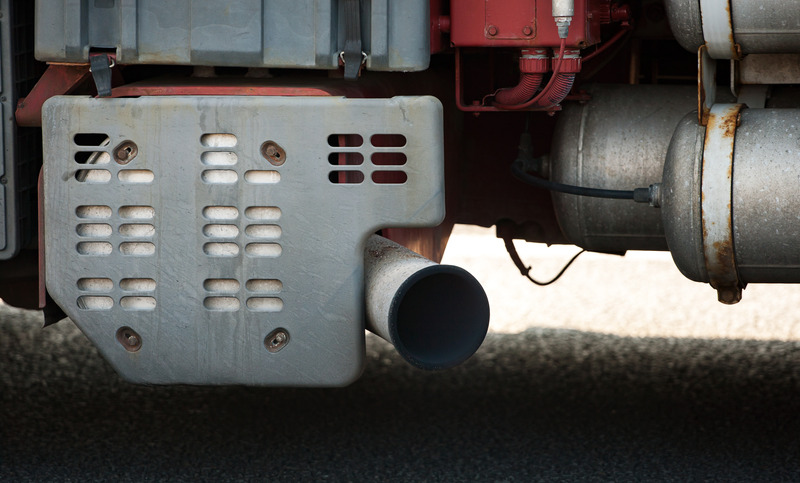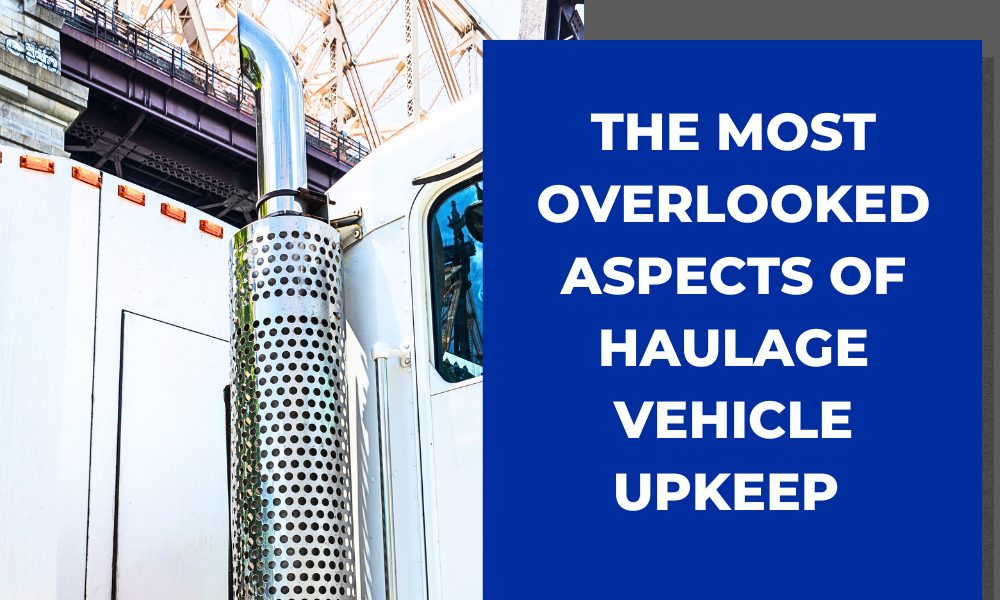Haulage vehicles form the backbone of the transport industry, covering long distances and frequently operating in demanding conditions. While drivers, fleet managers, and business owners recognise the importance of regular maintenance, certain aspects of haulage vehicle care are often overlooked. Addressing these neglected areas can significantly reduce the risk of unexpected breakdowns, extend haulage vehicle longevity, and minimise operational costs.
At WA Haulage Repairs, we understand the importance of comprehensive upkeep. In this article, we’ll delve into some of the most commonly overlooked elements of haulage vehicle maintenance and share practical tips to keep your fleet in optimal condition.
1. Tyre Health Beyond the Basics
One of the most essential yet often overlooked aspects of haulage vehicle care is tyre maintenance beyond the basics. While many fleet operators regularly check tyre pressure, there’s much more to tyre health. Failing to monitor issues like uneven wear, punctures, or alignment problems can lead to premature tyre wear, reduced fuel efficiency, and even safety risks.
Haulage Vehicle Upkeep Tips for Tyre Health:
- Tyre Rotation: Regularly rotate tyres to ensure even wear and extend their lifespan.
- Alignment Checks: Misaligned wheels can lead to uneven wear and may affect the vehicle’s handling, particularly when carrying heavy loads.
- Tread Depth Inspection: Keep an eye on tread depth to ensure optimal traction, especially in wet or slippery conditions.
2. Brake System Checks for Maximum Performance
Brakes are a critical component in haulage vehicle maintenance, yet many operators underestimate the importance of frequent brake system inspections. Keeping brakes in top condition is essential not just for vehicle longevity but also for safety, especially when operating in high-traffic or challenging terrains.
Haulage Vehicle Care Tips for Brake Systems:
- Regular Brake Fluid Replacement: Over time, brake fluid can absorb moisture, reducing braking efficiency. Regularly replacing brake fluid helps prevent corrosion and maintains brake performance.
- Check Brake Pads and Discs: Worn-out pads or discs increase stopping distances and can damage the braking system if left unchecked. Monitor wear indicators and replace pads and discs promptly.
- Brake Balance Inspection: Ensure that brakes are balanced across all wheels, which improves control and prevents excess strain on individual tyres and suspension components.
3. Electrical System and Battery Maintenance
In modern haulage vehicles, electrical systems are increasingly complex, powering everything from lighting and safety sensors to engine management systems. Batteries are often neglected until they cause a breakdown, but proactive haulage fleet care essentials include regular battery and electrical system checks to avoid unexpected issues.
Haulage Vehicle Care Tips for Electrical Systems:
- Battery Terminal Cleaning: Dirty or corroded terminals can hinder battery performance. Clean terminals regularly to maintain a secure connection.
- Voltage Testing: A battery’s voltage should be checked periodically to assess health and identify when replacement is needed before it fails.
- Inspect Wiring and Connections: Loose or damaged wires can lead to electrical failures. Ensure all wiring is secure and replace any that show signs of wear.
4. Cooling System Efficiency
Keeping the engine at the correct temperature is crucial for haulage vehicle longevity, but many operators overlook the cooling system until issues arise. The cooling system plays a vital role in preventing engine overheating, which can lead to costly repairs and vehicle downtime.
Haulage Vehicle Upkeep Tips for Cooling Systems:
- Coolant Level and Quality Checks: Regularly check coolant levels and quality. Use manufacturer-recommended coolant to ensure proper engine temperature regulation.
- Inspect Hoses and Radiator: Look for leaks, cracks, or wear in hoses and radiator components. Faulty hoses or a damaged radiator can cause engine overheating.
- Flush the Cooling System: Periodic flushing removes debris and sediment that accumulate in the cooling system, improving efficiency and extending engine life.
5. Suspension and Undercarriage Care
The suspension and undercarriage of a haulage vehicle endure a tremendous amount of stress, especially on rough or uneven roads. These parts support the weight of heavy loads and ensure the vehicle’s stability and handling, making them crucial to haulage fleet care essentials. However, they’re often overlooked in routine maintenance.
Haulage Vehicle Care Tips for Suspension and Undercarriage:
- Check for Worn Shocks and Struts: Worn shocks and struts affect the vehicle’s handling and can cause uneven tyre wear. Replace these components as needed to maintain smooth handling.
- Inspect Bushings and Joints: Suspension bushings and joints wear down over time, leading to reduced stability. Regularly inspect and replace worn parts to prevent further wear on other components.
- Undercarriage Cleaning and Protection: Dirt, salt, and grime can accumulate on the undercarriage, leading to corrosion. Regularly clean and apply an anti-corrosion treatment to keep the undercarriage in good condition.
6. Exhaust System Health

A healthy exhaust system ensures that harmful gases are directed away from the vehicle, enhancing both safety and fuel efficiency. Exhaust issues can often go unnoticed, but routine checks are essential for optimal performance and haulage vehicle longevity.
Haulage Vehicle Upkeep Tips for Exhaust Systems:
- Check for Leaks and Damage: Inspect the exhaust system for leaks, rust, or damaged components. Even small exhaust leaks can reduce engine performance and increase emissions.
- Catalytic Converter Monitoring: The catalytic converter plays a key role in reducing emissions. Ensure it’s functioning properly to comply with environmental regulations and maintain efficiency.
- Clean the Exhaust System: Over time, soot and carbon build-up can clog the exhaust, impacting performance. Periodic cleaning keeps the system clear and running smoothly.
7. Cabin and Driver Comfort Features
While cabin maintenance might not directly impact the performance of a haulage vehicle, it plays a crucial role in driver safety and satisfaction. Overlooking this part of haulage vehicle care can lead to driver fatigue, discomfort, and reduced efficiency.
Haulage Fleet Care Essentials for Driver Comfort:
- Seat Inspections and Adjustments: Comfortable seating is vital for long hauls. Inspect seat padding, springs, and adjustments to ensure drivers have adequate support.
- Air Conditioning and Ventilation Maintenance: Maintaining a functional air conditioning system is essential for driver comfort, particularly during hot weather.
- Cabin Cleanliness: A clean, organised cabin not only boosts driver morale but also improves safety by reducing distractions.
8. Software and Telematics Updates
In modern fleets, software and telematics systems provide critical data on vehicle performance, route optimisation, and maintenance needs. Despite their importance, these systems are often left without updates, compromising efficiency.
Haulage Vehicle Care Tips for Software and Telematics:
- Regular Software Updates: Ensure that any telematics and vehicle management software is updated to the latest versions to avoid performance issues.
- Calibration Checks for Sensors and Monitors: Sensors for tyre pressure, fuel efficiency, and braking may need periodic calibration to ensure accuracy.
- Data Monitoring for Preventive Maintenance: Use telematics data to schedule preventive maintenance based on real-time performance metrics, which can help address issues before they become costly repairs.
9. Fuel System and Filter Checks
Fuel system maintenance is another key aspect of haulage vehicle upkeep. Contaminated fuel, clogged filters, or a neglected fuel system can lead to engine inefficiencies, increased fuel consumption, and breakdowns.
Haulage Vehicle Upkeep Tips for Fuel Systems:
- Replace Fuel Filters Regularly: Clogged fuel filters can strain the engine, affecting performance. Replace fuel filters at recommended intervals to maintain efficiency.
- Inspect Fuel Lines for Leaks: Fuel line leaks are not only wasteful but also dangerous. Routinely inspect lines and connections for any signs of wear or leaks.
- Monitor Fuel Quality: Use high-quality fuel and consider fuel additives to improve efficiency and reduce engine wear.
Take the Next Step in Fleet Care with WA Haulage Repairs
Maintaining a haulage fleet is about more than just routine checks. Addressing often-overlooked areas like tyre health, brake systems, and undercarriage care can significantly reduce downtime, extend vehicle lifespan, and improve overall efficiency. By focusing on these critical elements, you not only protect your investment but also enhance safety and performance on the road.
At WA Haulage Repairs, we specialise in helping fleet operators maintain their vehicles to the highest standard. From expert servicing to tailored solutions, our team is committed to keeping your fleet in prime condition. Visit WA Haulage Repairs or contact us on (08) 9359 0422 to explore our services and book your next maintenance session. Let us help you keep your fleet performing at its best.

